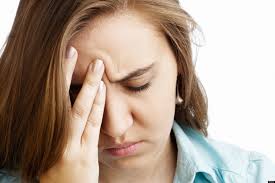
TOOLS FOR REDUCING ANXIETY
 Whether you are struggling with general anxiety or acute anxiety attacks, try some of these tried and true tools for reducing anxiety:
Whether you are struggling with general anxiety or acute anxiety attacks, try some of these tried and true tools for reducing anxiety:
1 – Take a deep breath and pause. It is a cliché (they are cliché’s for a reason – they are universal truths), but taking a few deep breathes and counting to 10 will trigger your parasympathetic nervous system and automatically decrease the affects of anxiety in your body.
2 – Change your environment for a moment. If you’re in your office and you can take a brief break, try taking a walk outside and get some fresh air, nature, and change of scenery. If you’re behind your desk/computer, try to go to a break room or walk to a co-workers office to chat for a minute and remove yourself from the screen.
2b – If you are not able to physically change your environment, take a moment to close your eyes and visualize yourself somewhere you would really like to be, like the beach/ocean, forest, mountains. Even a 30-second mindful visualization can reduce anxiety and make you feel somewhat rejuvenated.
3 – Notice your thoughts in generally, but also about the anxiety in the moment, and ask yourself, “Is it true?” Often we belief our thoughts outright, and many times these thoughts are not actually true. Sometimes we catastrophize, or make things much bigger than they are at the moment, and we can often project out into the future much further than seems reasonable or remotely useful. Just ask, “Is it true?” (For more information, look at www.ByronKatie.com and her books)
4 – Notice if you’re comparing yourself to someone else or yourself at a different time. If you are, is this fair to you? Usually, when we compare, we lose and it isn’t a fair representation for us at all. If your answer is yes, try to refrain from this kind of comparison because it creates more anxiety, and reframe your thought process to include more kindness and compassion toward yourself.
5 – Contact someone you love and trust. Create a support system of people you can rely on to help you look at your situations more realistically and with empathy and compassion. Do not reach out to anyone who makes you feel worse or with whom you compare yourself.
6 – Focus on things that you’re grateful for today and take your attention away from the negative. What are some really small things that went well for you today? Keep it small and simple. Did you enjoy smelling something fragrant on your way to work? Did you make it to work safely and without incident? Did you enjoy a nice breakfast or lunch today? Did you enjoy seeing the sunrise?
7 – Drink something warm or wash your hands under warm water. Warmth can activate your parasympathetic nervous system and engage a relaxation response.
8 – Put your hands on your heart and say something nice, sweet, calming to yourself (inwardly or aloud). You can also pat yourself around the collarbone area to engage the parasympathetic nervous system and acupressure points that engage a relaxation response as well.
9 – Exercise on a regular basis. This releases all the feel-good chemicals and can balance you out more to relieve anxiety. Do not set expectations too high; do what will work well for you (no comparisons).
10 – Watch less television, especially the news. News triggers anxiety for many people and it can be beneficial to limit your exposure to the news. Television in general can trigger and increase anxiety as a whole, so try to get out and live your life more fully and less vicariously through characters on TV. TV is not the enemy and can be relaxing in moderation, but can be experienced as anxiety-provoking for some especially in large doses.
Kimberly Atwood is a psychotherapist in private practice with offices in Doylestown, Pennsylvania and Midtown Manhattan, NYC. She specializes in working with people in their 20’s and 30’s dealing with eating disorders, intimacy issues, and related anxiety. For more, please visit Kim’s ‘Finding Your Voice’ Blog.
